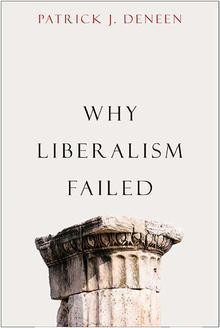The Art of the Impossible - Speeches by Vaclav Havel
Looking back, the fall of communism in Central and Eastern Europe came suddenly and, in many cases, was completed with relatively little bloodshed. One example of this is the so-called Velvet Revolution in Czechoslovakia, which led to playwright and dissident, Vaclav Havel, being elected president in a bloodless rebellion.
In a 1997 book, The Art of the Impossible, we are provided the texts—translated into English—of a number of Havel’s speeches from his time as president of Czechoslovakia and, a few years later, the Czech Republic. As historical artifacts, these speeches are somewhat interesting. However, as expressions of a political philosophy, the speeches are engaging and thought provoking.
After decades of resisting Soviet occupation and communist rule, Havel had the responsibility to help his country peacefully transition to a democratic, free-market political economy. The risk of this transition leading to political violence against the former oppressors is always real. Simultaneously, the temptation for the new ruling class to become just like the old ruling class was strong.
The speeches in this volume are arranged chronologically, so they have a variety of topics. There is a clear trajectory in them that shows the ways Havel’s nation was changing and the landscape of Europe was shifting to accept the former Soviet-bloc countries. Each of the chapters, however, seems surprisingly frank and open.
For example, the first speech was given on New Year’s Day in 1990, shortly after communism had been overthrown and Havel named president. He notes early in his speech, “Our country is not flourishing.” But this was not simply due to the political turmoil, but a profound misdirection of society, because,
“The enormous creative and spiritual potential of our nations is not being used sensibly. Entire branches of industry are producing goods that are of no interest to anyone, while we are lacking the things we need. A state that calls itself a workers’ state humiliates and exploits its workers. . . . We have contaminated the soil, rivers, and forests bequeathed to us by our ancestors, and today we have the most polluted environment in Europe.”
Havel could say this, of course, because he was looking at the abusive legacy of four decades of communist tyranny. However, the quick pivot toward arguing that he is going to make everything great again doesn’t come. Instead Havel emphasizes the difficulty that lies ahead and how much it was going to take to become a healthy nation.
One of the major themes in this work is responsibility. In contrast to contemporary political discourse in the United States, which typically focuses on rights. On the left, the concern is positive rights: the right to have other people work to provide something for me. On the right, the concern is typically negative rights: the right to own weapons, live faithfully, and keep a larger percentage of wealth. In a state of precarious need, Havel draws people’s attention to their duties to each other and to society in a powerful way.
Among the more interesting speeches is his speech on “The Anatomy of Hate,” given in 1990, only a few months after the fall of communism. As a man who had suffered so greatly in prison, it must have been difficult not to hate his oppressors, but Havel explains the pieces of hate in a way that makes it clear why its pull is so strong and why he resisted it. This chapter alone is worth the price of the book.
Collections of thought like this are helpful for those in generations who have not witnessed the destructive power of communism, because Havel provides examples and testimonies of how oppressive that form of socialism is and, after having experienced the “benefits” of full socialism for decades, how eager the population was to get a market economy. There is a moral difference between socialism and a market economy, and the second is preferred by people who have experienced the first.
At the same time, Havel is clear that freedom cannot exist without responsibility. This responsibility, Havel argues, is rooted in the human understanding of the existence of a transcendent power beyond our immediate understanding. Though Havel explicitly denies being aligned with any particular religion, he recognizes the common recognition within humanity that there is something that made all things, holds all things together, and is moving history toward something. In a manner similar to Solzhenitsyn’s Harvard Commencement Address, Havel calls for respiritualizing politics and daily life; the acknowledgement of something greater helps reduce the absolutizing abuses of ideology.
These speeches are surprisingly fresh and insightful, given some of them are three decades old. The landscape of world politics, particularly politics in Europe, have changed significantly, but many of the challenges Havel recognized are still evident and, indeed, still need to be dealt with.






























There’s no reason to doubt that Jesus was nailed to the cross. Ultimately, I trust what Scripture says about Jesus’s crucifixion because I also trust what it says about his resurrection. And that’s what we should be celebrating this week.